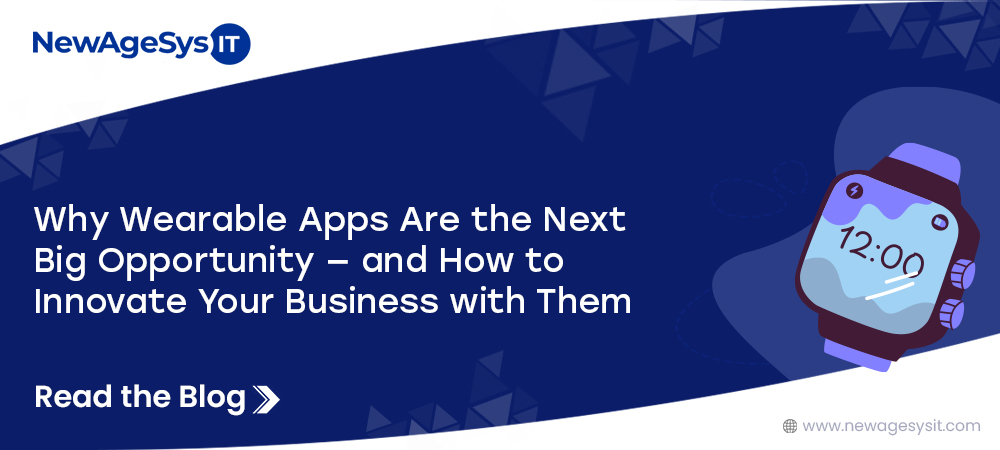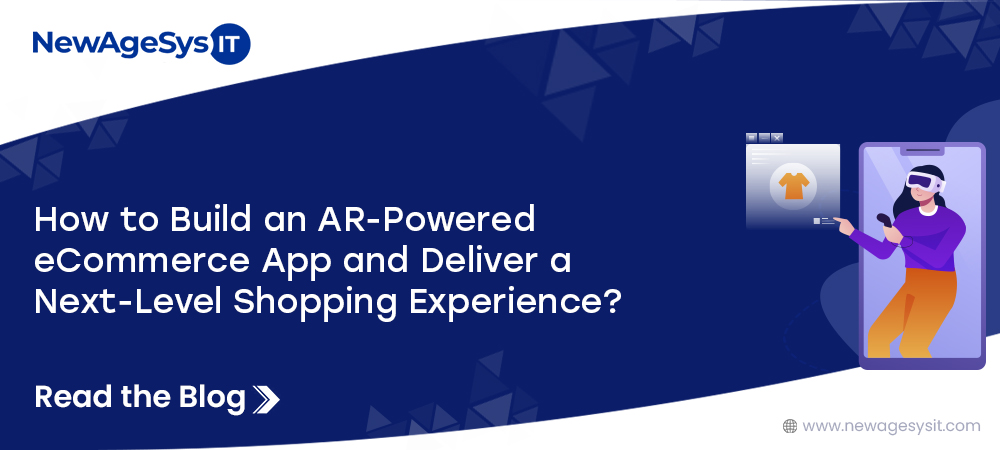The emerging technologies aren’t just shaking up industries; they’re rewriting the script of how we engage with everything around us in today’s digital age. Moving deeper into the 21st century, technologies like artificial intelligence, machine learning, blockchain, and edge computing are turning industries on their heads. With these technologies, workflows will get smoother, people will stay better connected, and exciting opportunities will emerge for companies and consumers.
Advancements like these are exciting, but they also present challenges that require mindful handling to ensure their benefits while managing concerns about privacy, security, and ethical considerations. This blog explores the impact of new and emerging technologies.
The Significance of Analyzing Emerging Trends in the IT Landscape
Understanding how new trends transform the IT world is vital for organizations to stay competitive and fuel fresh ideas. With technology constantly pushing boundaries, businesses must adjust their approaches to operations, customer relations, and market dynamics.
Emerging IT technologies can create innovative gadgets, improve work efficiency, and influence consumer habits. Careful analysis is essential to fully taking advantage of these advancements. Keeping an eye on these trends is crucial for IT consulting services, as they provide the foundation for crafting smart strategies that match modern tech advancements.
Artificial Intelligence
AI is changing the face of technology by allowing systems to take on human-like tasks, from understanding speech to recognizing patterns and making smart decisions. AI brings sharper precision and faster workflows to IT systems, letting organizations automate the mundane and double down on strategic priorities. This change helps cut expenses while making services better and keeping customers happier.
Businesses gain the upper hand by using AI to transform complex data into insights that drive well-thought-out decisions. AI’s ongoing growth drives technological breakthroughs, creating applications and systems that can intuitively adjust to diverse and dynamic scenarios.
Machine Learning
A key part of AI, Machine Learning, is changing how IT works by letting systems use data to learn and improve their efficiency without needing direct coding. This feature helps businesses tap into data analytics, enabling them to make sharper predictions and deliver tailored experiences for their users.
ML algorithms tackle complicated data head-on, identifying trends and irregularities essential for detecting fraud, maintaining systems, and organizing customers into meaningful groups. AI/ML services have broken through traditional limits, giving businesses of all sizes the ability to innovate and adapt like never before. Machine learning is rapidly advancing, promising to shape the impact of new and emerging technologies. It’s done through powering intelligent tools that transform decision-making and operational workflows in various sectors.
Edge Computing
Rather than using a big, distant data center, edge computing processes data right where it’s being generated. This technology cuts down on delays, boosts speed, and makes data processing way more efficient. The ever-expanding Internet of Things is generating so much edge data that traditional cloud models are struggling to keep up.
Edge computing processes data on the spot, enabling businesses to react faster, improve workflows, and delight their customers. From autonomous cars to intelligent urban systems, this advancement drives real-time processing while decentralizing IT infrastructure and promoting innovation across industries.
Quantum Computing
Unlike classical computers, quantum computing uses the principles of quantum mechanics to revolutionize how information is processed. With this technology, we might finally crack problems that seem unsolvable for regular computers, like optimizing systems, strengthening cryptography, and revolutionizing drug development.
The introduction of quantum computing has profoundly altered the IT field, disrupting traditional methods of data protection and processing. Quantum algorithms are gaining traction among organizations, offering the ability to outperform classical solutions and transform fields like AI and machine learning. As quantum breakthroughs continue, they’re expected to both disrupt industries and create fresh pathways, demanding a fresh perspective on IT infrastructure and strategic planning.
Blockchain Technology
Blockchain technology is reshaping data storage and sharing like never before across countless industries. By making transactions safer and more decentralized, it strengthens user confidence and transparency. You’ll see the biggest impact of this tech in industries like finance, healthcare, and logistics, where accurate and trustworthy data is everything.
When businesses embrace blockchain, they’re not just streamlining processes but also sparking a wave of innovation and teamwork through digital transformation services. By enabling smart contracts, processes can run smoothly without the hassle of third-party involvement.
Internet of Things (IoT)
The IT scene is being flipped on its head by IoT, linking your everyday stuff to the web for seamless real-time data flow. With this connection, businesses can tap into meaningful data about customer behavior and operational workflows, empowering more strategic decision-making.
IoT applications are reshaping industries such as connected homes, healthcare innovation, and automated manufacturing, setting new benchmarks for automation and resource control. Companies using IoT push their digital transformation further, designing smarter ecosystems that improve customer experiences and streamline processes.
5G Technology
The arrival of 5G marks a new era of connectivity, promising speedier data, almost no lag, and the ability to connect countless devices all at once. The evolution fosters new emerging IT technologies, streamlining device interactions and accelerating IoT application growth.
5G, paired with the latest emerging IT technologies, allows businesses to analyze data instantly, improve remote workflows, and immerse customers in augmented and virtual reality adventures. Beyond faster downloads, 5G helps businesses pivot, create new ideas, and digitally evolve, keeping up with the changing tides of their industries.
Robotics
The IT sector is being revolutionized as robotics steps in to handle intricate tasks in countless fields. Introducing robotic systems helps businesses produce more, spend less, and ensure worker safety. With the rise in emerging IT technologies, it’s stepping into roles we used to think only people could handle, changing how businesses operate and how teams work together.
As robotics evolves, developing advanced software and control systems has become essential, paving the way for new heights in AI, machine learning, and sensor tech. The rise of robotics showcases its essential contribution to the ever-evolving landscape of emerging IT advancements.
Natural Language Processing (NLP)
NLP is transforming the way we engage with technology, teaching machines to make sense of, respond to, and replicate the way humans interact. This progress enables smoother, more user-friendly interactions, making it easier for people to talk to systems using everyday language. Natural Language Processing finds applications everywhere, particularly in automated customer service, letting chatbots manage FAQs while humans take care of the heavy lifting.
NLP algorithms simplify the hard work of processing tons of text in data analysis, making them critical for designing technical systems. When IT systems incorporate NLP, they become more user-friendly, more engaging, and more efficient, pushing us closer to truly people-focused tech.
Extended Reality (XR)
Virtual Reality, Augmented Reality, and Mixed Reality—together known as XR—are reshaping IT by creating immersive spaces where the digital and physical interact seamlessly. XR technology allows workers in high-stakes industries to safely practice their skills in controlled, low-pressure environments.
Virtual reality tools like XR let customer support teams showcase products in action while giving users real-time assistance for a better experience. The rise of XR technologies is reshaping the tech landscape, inspiring leaps in hardware, software, spatial computing, graphics power, and interface designs. As XR technology grows, it’s set to transform entire industries and reinvent how we experience the digital space, boosting both interaction and productivity.
Final Words…
To sum things up, emerging technologies are charging forward, reshaping IT, inspiring innovation, and offering limitless possibilities across industries. Proactively incorporating these technologies helps businesses achieve better productivity, outpace their rivals, and grow steadily in a world powered by digital transformation.
NewAgeSysIT is a top-notch IT consulting firm that thrives on bringing cutting-edge technologies to life. Our expertise lies in creating forward-thinking solutions to simplify the complex world of technology for businesses. We specialize in a diverse array of services, ranging from IT consulting strategies to building mobile applications. At NewAgeSysIT, a leading app development company in New Jersey, staying ahead of technology is how we enhance brand growth and business success.
Looking to explore how emerging technologies are transforming the IT sector? Reach out now for a complimentary consultation.



